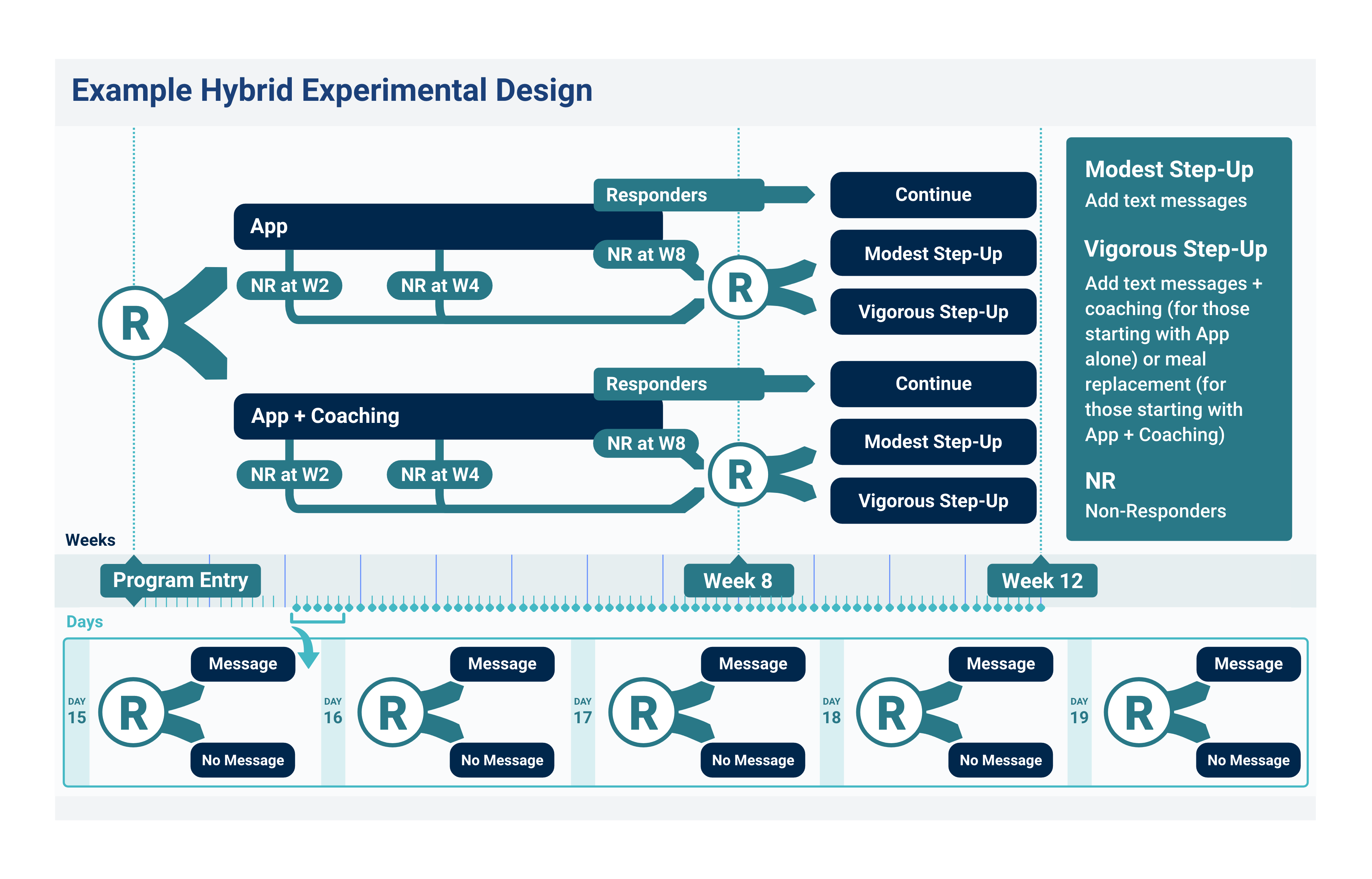Integrating human-delivered and digital interventions
Advances in mobile and wireless technologies offer tremendous opportunities for extending the reach of psychological interventions and adapting interventions to the unique and changing needs of individuals.
Human delivery is essential to engagement, but it is both expensive and burdensome.
The integration of digital and human-delivered components is critical to building effective and scalable interventions.
Hybrid Experimental Designs for optimizing MADIs
Hybrid Experimental Designs (HED) can be used to answer scientific questions about the integration of human-delivered and digital components and their adaptation at multiple timescales. Researchers can use HEDs to design effective Multimodal Adaptive Interventions (MADI).
Various hybrid experimental designs are possible, such as hybrids of a standard factorial design with a SMART or an MRT, or a hybrid combining a SMART and an MRT.
EXAMPLE. This SMART-MRT hybrid was devised to answer scientific questions key to the development of the multimodality adaptive intervention above. Learn more about this study.

Featured Resources
Join Our Network
Be the first to hear about new resources, opportunities, and advancements related to adaptive interventions and intervention optimization.



